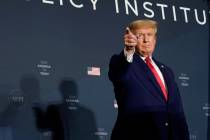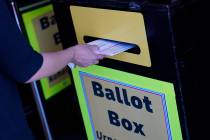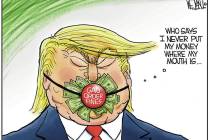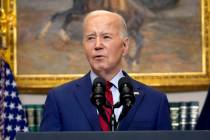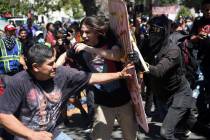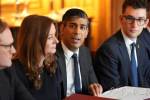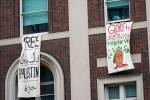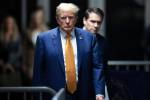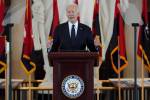EDITORIAL: UNLV, UNR must improve speech codes
Colleges and universities are supposed to be marketplaces of ideas, where students from a diverse array of political, economic, ethnic, social and religious backgrounds can heartily debate the merits of what they believe, while learning more about what others believe, and why they believe it. But in the age of the precious flower, where students — and alarmingly, many professors and administrators — believe they have a right to never be offended, the marketplace’s shelves offer fewer and fewer ideas.
Nevada’s two public universities are no exception. The Foundation for Individual Rights in Education released its 2015 college campus speech report this month, and once again, the University of Nevada, Las Vegas and the University of Nevada, Reno maintained their red-light ratings.
They were hardly alone. Of 437 schools surveyed (333 public, 104 private), 55 percent received a red-light rating, and 39 percent got a yellow-light rating. A paltry 4 percent earned the green-light rating — imagine a traffic signal regulating expression — for adopting policies that allow a free flow of speech.
Two major factors contributed to UNLV’s ranking. First is the school’s statement on diversity in the university community. Samantha Harris, director of policy research for FIRE, said the code rightly prohibits harassment, but then goes off the rails.
“It also prohibits disrespect,” Ms. Harris said. “If you actually think through what it means to prohibit disrespect, especially on politics, you can quickly see how bad this policy is. It prohibits core political speech. Political debate, religious debate, those things don’t have to be respectful to be protected by the First Amendment. In theory, any political or religious debate that anybody found objectionable would be punishable under this policy. Presumably, students read this policy and might be censoring themselves.”
Second is UNLV’s computer use policy, which includes an overly broad ban on sending offensive messages. “Because again, that could mean anything,” Ms. Harris said, citing political or religious debates carried out online. “Whatever the university’s intent, on its face, this policy covers a tremendous amount of protected speech.”
UNR has problems with its student conduct regulations and policies, specifically a section that includes a ban on acts of unwelcome verbal conduct that is sexual in nature. “It’s so broad — an off-color joke, asking for a date,” said Ms. Harris, while noting the Supreme Court’s definition of harassment. “It has to be severe, pervasive and objectively offensive. The mere fact that this is isolated speech does not strip it of constitutional protection. Verbal abuse is a common prohibition, because it’s ambiguous. But students need clear guidance. Verbal abuse is too vague.”
On Jan. 5, Len Jessup will take over as UNLV president. One of his first orders of business should be raising the university’s standing with FIRE. UNR President Marc Johnson should do likewise. And FIRE is ready and willing to assist. In just the past year, the organization helped the University of Florida, Oregon State University and Plymouth State University eliminate all speech codes and earn green-light ratings.
“Universities often view us as an adversary,” Ms. Harris said. “We are so happy to work with administrators who want to work with us on speech codes.”
Failure to take Ms. Harris up on that offer will have consequences. It’s not a matter of if, but when UNLV and UNR are sued over these policies. And when they get sued, they’re going to lose.
Nothing should be more offensive to higher education leaders and college students than the flagrant violation of individual liberties. It’s time to restock the shelves at marketplace of ideas.









